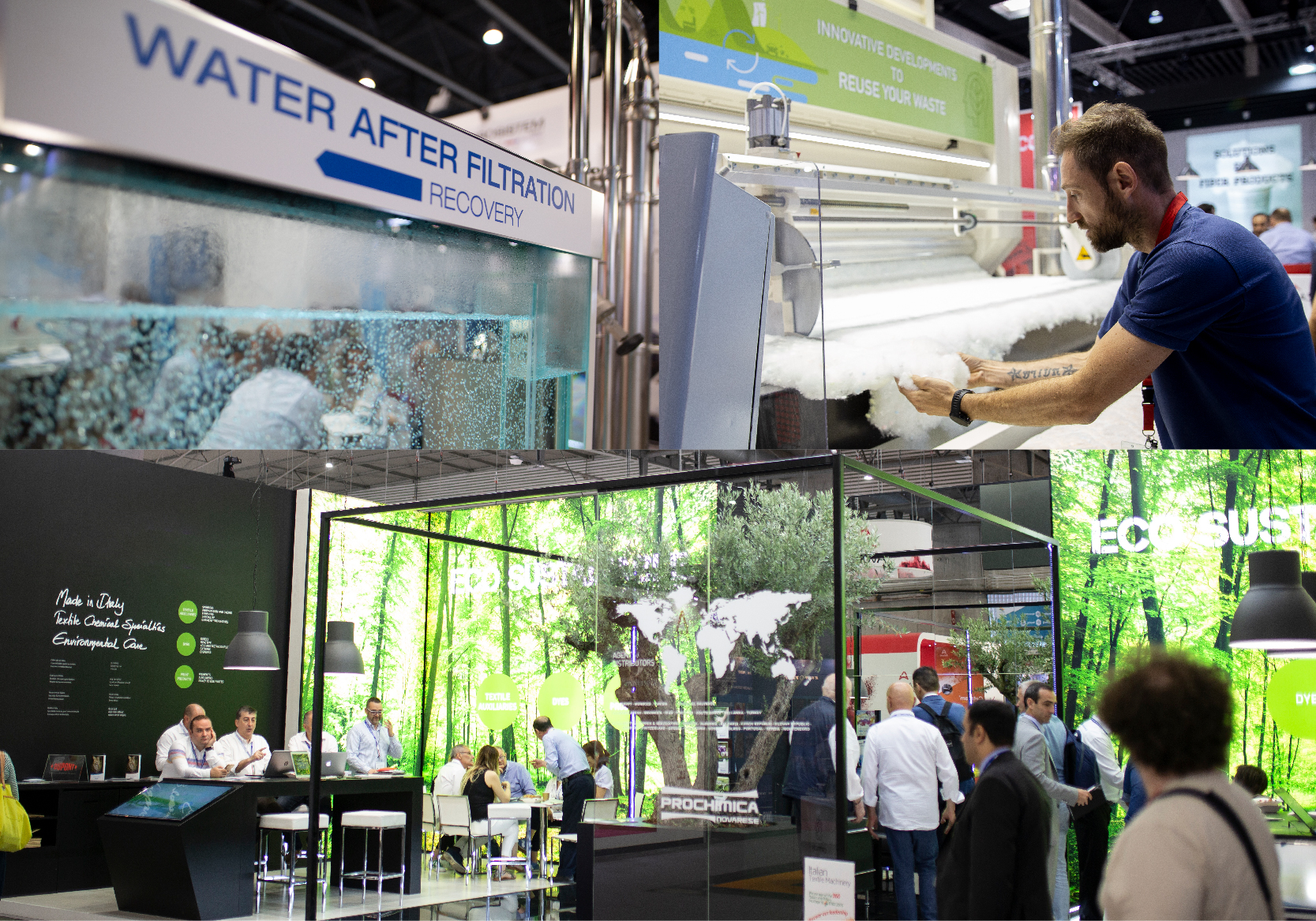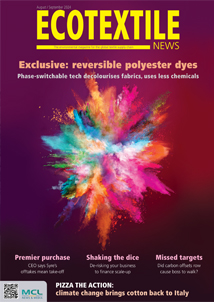SPONSORED CONTENT - The textile industry has been constantly evolving and reinventing itself in innovative ways. In recent years research and development efforts in the sustainability space have ramped up as issues become more pressing. Innovation will help accelerate the textile industry toward a green future as many of the new technologies aim to reduce the environmental impact caused by manufacturing processes.
Dyeing and finishing involve many stages of washing and drying that consume huge amounts of water and chemicals. Textile machinery builders have already made great progress in the development of dyeing machines, especially the design and control technology which helps to reduce water consumption substantially.
The textile production process is energy intensive. Machine builders now provide dual heating systems such as combinations of gas and steam or gas and oil to reduce dependence on gas, as well as systems for recycling waste heat from drying processes.
Industry 4.0 technologies used in the textile supply chain can also lead to savings in energy consumption, as well as the reduced consumption of other raw materials. The digitalisation of the fibre spinning sector, for example, helps to create greater efficiencies in resource inputs, thanks to the establishment of global networks and centralised processing and storage.
In addition, there are many new developments in fibre recycling. Although polyester recycling and spinning fibre from recycled bottle flakes have been a proven technology, closing the loop for most types of man-made fibres is still fairly new.
Among the pioneering technologies are enzymatic, polyester chemical recycling, and hydrothermal recycling technologies. The next step in the circularity journey is the commercial adoption of textile-to-textile recycling technologies.
Besides recycling, there is a trend toward next-gen material innovation. Major brands are backing and collaborating with manufacturers and start-ups to trailblaze new materials. TreeToTextile created an innovative man-made cellulosic fibre technology that provides textile fibres with good sustainability performance at an attractive cost level. It is backed by H&M Group, Inter IKEA Group, Stora Enso and LSCS Invest.
Another start-up, Noosa produces 100% recyclable fibre from corn, helping the textile industry to reduce waste at pre- and post-consumer levels. Both Noosa and TreeToTextile are participating in the new Start-Up Valley at ITMA 2023, the world’s largest international textile and garment technology exhibition.
Held at the Fiera Milano Rho from 8 to 14 June 2023, ITMA will be the first large-scale textile machinery exhibition post-pandemic. It will feature more than 1,600 exhibitors from 44 countries. Visitors can explore the latest technologies and materials clustered in 20 product sectors for easy sourcing, and view live machinery demonstrations. Held every four years, the exhibition will be complemented by knowledge-sharing events organised by ITMA and industry partners.











































